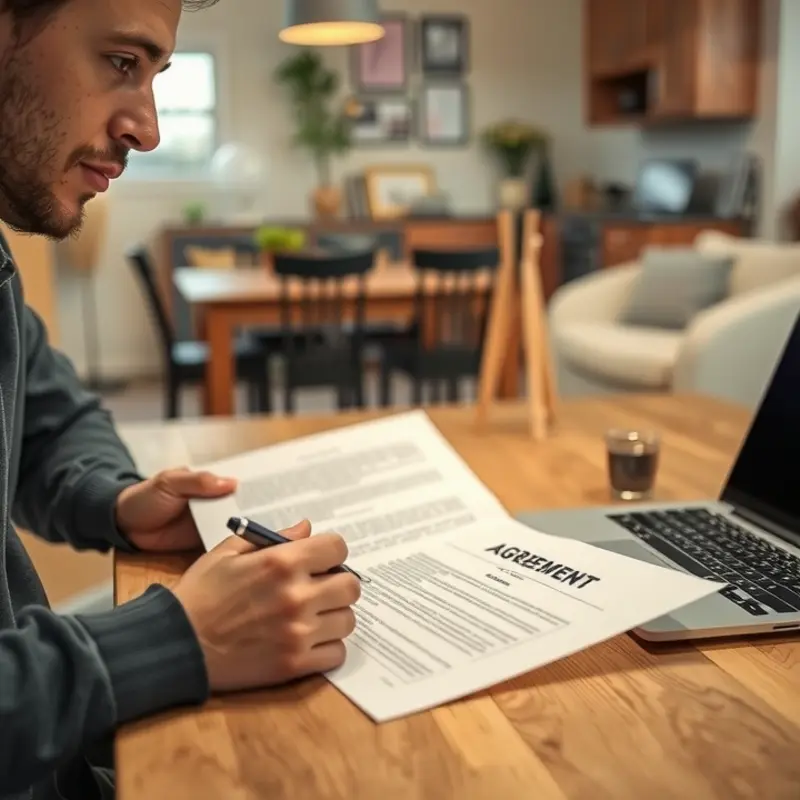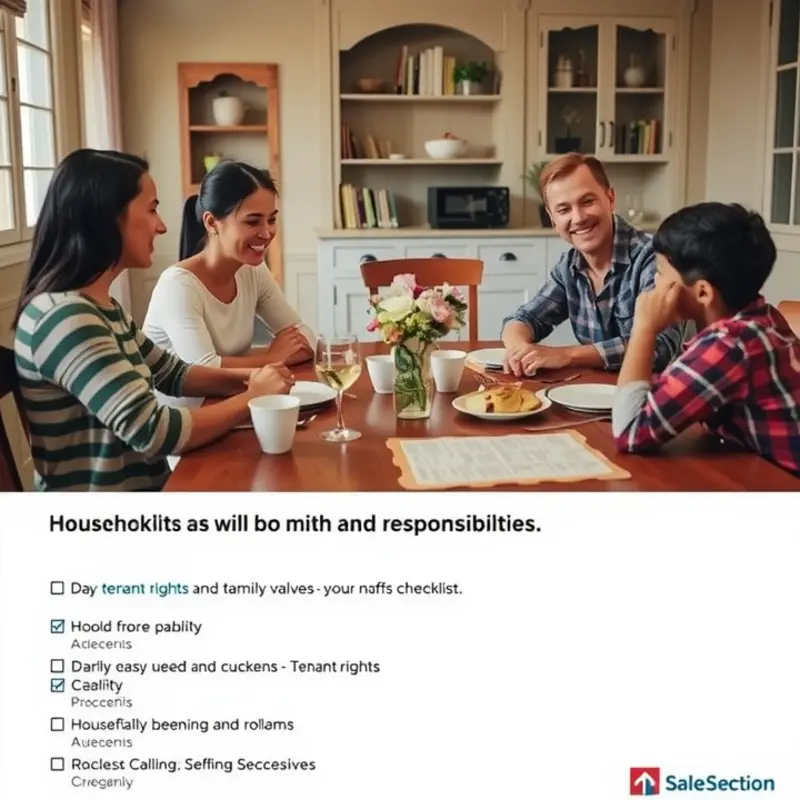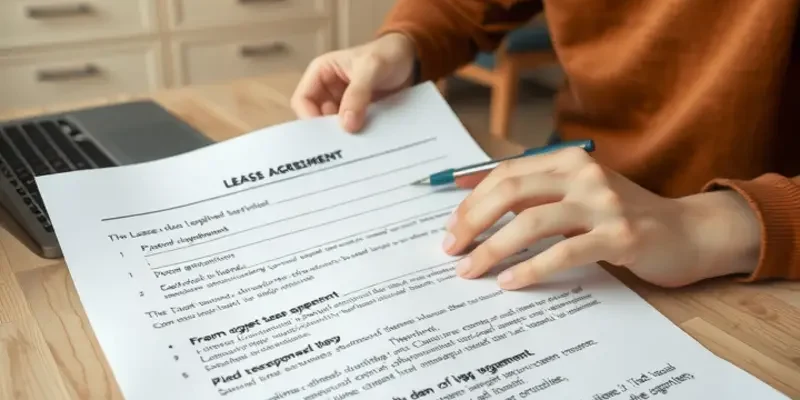Renting a home can feel overwhelming, particularly for young professionals, students, couples, or families embarking on this journey for the first time. A clear understanding of your rights as a renter in Texas is essential to creating a secure and financially sound living environment. Texas law offers various protections, ensuring you are treated fairly as a tenant. This guide aims to break down those protections in a straightforward manner, providing clarity on lease agreements, security deposits, and essential maintenance responsibilities. Whether you’re negotiating your first lease or ensuring your current landlord adheres to legal obligations, being informed is the first step toward empowering your renting experience. Let’s uncover what you need to know to protect yourself and make the most of your rental situation.
Decoding Your Lease Agreement

Understanding your lease agreement is crucial for a successful renting experience. A lease not only sets the groundwork for your living arrangement but also outlines your responsibilities and rights as a tenant. Here’s how you can navigate your lease effectively to avoid costly misunderstandings.
First, pay close attention to rent clauses. These include the amount due, payment schedule, and acceptable payment methods. Ensure clarity on late fees and the grace period, if any. Typically, Texas law requires your landlord to provide a receipt for cash payments, so if you prefer this method, request one every time.
Maintenance and repair responsibilities often spark confusion. Examine who is accountable for specific repairs. Generally, landlords handle major repairs like plumbing issues. However, smaller fixes might fall on you. Landlords must ensure properties comply with health and safety standards, so be aware of the Apartment Damage Liability laws to understand what’s expected on both sides.
Early termination and renewal clauses are pivotal. Check the conditions under which you can end the lease prematurely, as they often involve fees or finding a replacement tenant. Renewal terms should be straightforward. Knowing these details beforehand allows you to plan your living situation better without unforeseen penalties.
The use of the property and restrictions imposed should be reviewed closely. Many leases include clauses that address noise levels, pet policies, and even the number of occupants allowed. Ensure they align with your lifestyle. If you plan on having a furry friend, check any restrictions or additional charges that might apply.
Security deposit terms are vital. Recognize the amount required, conditions for deductions, and the timeline for its return post-tenancy. Texas law typically mandates the return of deposits within 30 days after vacancy, provided no deductions are claimed.
Finally, always look for an arbitration clause. This clause dictates how disputes will be resolved, which can prevent costly legal battles. Negotiating this term can sometimes lead to more tenant-friendly outcomes.
Understanding and negotiating these aspects of your lease ensures a smoother rental process. When something appears ambiguous or unfair, don’t hesitate to ask for clarification or amendments. This proactive approach can safeguard you from unpleasant surprises, fostering a more comfortable and stress-free tenancy.
Understanding Tenant Protections and Responsibilities

Texas law empowers tenants with several protections to ensure their rental experience is fair and secure. Being aware of these rights helps tenants advocate for themselves effectively. Simultaneously, understanding tenant responsibilities fosters respectful and predictable relationships with landlords, crucial for a harmonious tenancy.
First, Texas tenants have strong protections against illegal eviction. Landlords must follow specific legal procedures before evicting a tenant. This includes providing a written notice and obtaining a court judgment. If a landlord attempts to forcibly remove you without following these legal steps, it is considered illegal eviction, and you have grounds to take legal action.
Discrimination in housing is another critical issue where tenants are protected under both federal and state laws. It’s illegal for landlords to discriminate based on race, color, national origin, religion, sex, familial status, or disability. If you suspect discrimination, agencies like the Texas Workforce Commission Civil Rights Division can help you file a complaint.
Regarding living conditions, tenants have the right to a safe and habitable home. Texas law mandates landlords to address issues that affect health or safety, such as plumbing, heating, or pest problems, within a reasonable time after being notified. If landlords fail to perform necessary repairs, tenants are entitled to remedies, which may include arranging repairs and deducting the cost from the rent. Learn more about how to handle such scenarios by exploring various apartment damage liability resources.
Besides protections, tenants also have significant responsibilities, the foremost being paying rent on time. This is a contractual obligation and failing to do so may lead to late fees or even eviction. It’s advisable to understand the specific terms outlined in your lease regarding rent payment schedules.
Tenants must also maintain the property in good condition. While landlords are responsible for major repairs, tenants are expected to manage routine tasks such as keeping the premises clean and notifying the landlord promptly of any significant issues. Moreover, tenants should adhere to lease terms on property use, including restrictions on unauthorized renovations or changes to the physical structure.
Being a responsible tenant includes respecting noise guidelines and community rules to ensure a peaceful environment for fellow residents. Additionally, if your lease permits having a pet, you should comply with any stipulations regarding pet care and responsibility.
In essence, knowing your rights and responsibilities not only protects you from potential misuse of power but also anchors your duties as a tenant, promoting a more enjoyable and stress-free rental experience. This dual understanding is pivotal in crafting a cooperative and respectful relationship with your landlord, benefiting both parties involved.
Final words
Arming yourself with knowledge about renters’ rights in Texas is crucial in fostering a responsible and respectful renting experience. By comprehending your lease agreement and understanding the protections afforded to you, you can navigate the rental market more confidently. Remember, being informed empowers not just your current living situation but sets the stage for future housing arrangements. If you ever feel uncertain or require assistance, don’t hesitate to reach out to local housing resources or legal aid organizations. Ensure that your voice is heard and your rights are upheld as you make a home in Texas.









